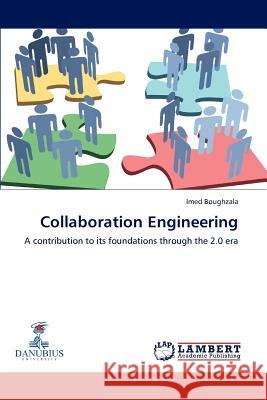Collaboration Engineering » książka
Collaboration Engineering
ISBN-13: 9783659285998 / Angielski / Miękka / 2012 / 192 str.
Modern Twenty-First Century organizations are continuously evolving in a complex, highly competitive and unstable environment where knowledge, adaptation and learning replace bureaucratic administration and top-down control. Collaboration has become an important competency for organizations that wish to leverage collective intelligence and maximize productivity. Needless to prove today that team performance is a key source of competitive advantage and effective collaboration is one important part of the solution. Moreover collaboration is increasingly distributed and virtual, and organizations increasingly depend on rapid collective decision and virtual teams. The goal of the research project presented in this book is to contribute to the foundation of the Collaboration Engineering, by introducing a holistic conceptual framework of study. This framework aims to be a unifying, integrating several dimensions of the study of collaboration: Modeling, Evaluation, Technology Specification and Knowledge Management. It opens a wider perspective with a new type of collaboration (2.0) that of the transformation of organizations in the 2.0 era.
Modern Twenty-First Century organizations are continuously evolving in a complex, highly competitive and unstable environment where knowledge, adaptation and learning replace bureaucratic administration and top-down control. Collaboration has become an important competency for organizations that wish to leverage collective intelligence and maximize productivity. Needless to prove today that team performance is a key source of competitive advantage and effective collaboration is one important part of the solution. Moreover collaboration is increasingly distributed and virtual, and organizations increasingly depend on rapid collective decision and virtual teams. The goal of the research project presented in this book is to contribute to the foundation of the Collaboration Engineering, by introducing a holistic conceptual framework of study. This framework aims to be a unifying, integrating several dimensions of the study of collaboration: Modeling, Evaluation, Technology Specification and Knowledge Management. It opens a wider perspective with a new type of collaboration (2.0) that of the transformation of organizations in the 2.0 era.











